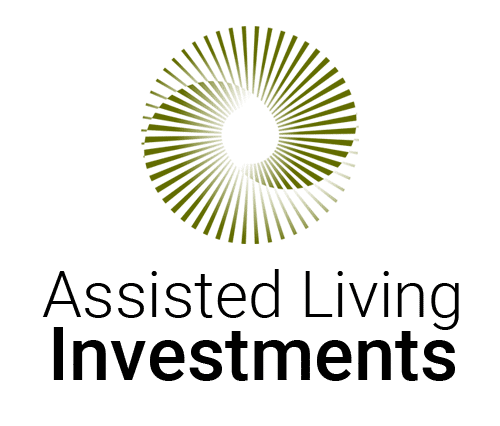Latest Property News, Industry Insights and Company Announcements.
July 2, 2025
Unlock capital. Improve cash flow. Expand your portfolio. As the demand for government-backed housing continues to grow, property investors are increasingly exploring refinancing options to optimise their returns and scale their portfolios. At Assisted Living Investments, we’ve seen a surge in interest from landlords and developers looking to refinance social... Keep Reading
September 17, 2024
Now the wait is over—Labour has unveiled major property reforms that could be the breaking point for some landlords. Labour’s recent election win has sent shockwaves through the property market, and now that their new property reforms have been unveiled, it’s clear that the era of security for landlords is... Keep Reading
September 17, 2024
September 17, 2024
August 19, 2024
The key differences between Social Impact Housing and Assisted Living Properties relate to their purpose, target population, and operational structures. Here’s a breakdown: 1. Purpose and Focus: 2. Target Population: 3. Funding and Investment: 4. Operational Structure: 5. Investment Returns: Summary: Both Social Impact Housing and Assisted Living Properties offer... Keep Reading
August 15, 2024
Deal for Shared Ownership Homes Marks Blackstone’s First Sale from Its Expanding UK Residential Portfolio Another landmark deal in the sector as Blackstone sells operator and 3000 shared homes in 405m deal to UK pension fund. Following other institutions, we’re seeing a trend of large North American equity funds entering... Keep Reading
May 11, 2024
Being a landlord in 2024 isn’t as easy as it once was. There are several challenges facing property investors today. Here are five reasons why being a landlord just isn’t what it used to be: In light of these challenges, many investors are diverting their attention away from traditional buy-to-let... Keep Reading
May 7, 2024
The UK property market has undergone significant diversification in recent years, particularly with the emergence of assisted living investment properties. Historically, property investment primarily revolved around buy-to-let residential or commercial properties. However, commercial property investment was primarily the domain of pension funds and large investment firms, rather than individual investors... Keep Reading
FAQs
What is supported living?
Supported living services enable people with a range of needs to live happy and fulfilling lives, independently and safely in their local communities. When a person goes into supported living, they have their own home with their own tenancy agreement. At the time, they receive support and care which can range from a few hours a week to one-to-one care 24 hours a day. Many people with learning disabilities, severe autism and other needs, require some level of support, so that they can maximise their independence and live the life that they choose. A supported living service can help if someone who does not want to live in residential hospice care but would find it difficult to cope on their own at home. Supported living helps people to make choices about how they want to live and allows them to keep doing the things that are important to them.
Can an overseas investor purchase a supported living property?
Yes, many of our investors are from outside of the UK and are looking for a secure income generating asset in the UK. Non-UK residents are required to complete a simple Non-Resident Landlord form (NRL1) to register their ownership and income with HMRC. Our after-sales team is on hand to assist with this process.
Can a supported living property be purchased by a UK limited company?
Yes, many of our clients choose this option should it suit their portfolio requirements. We can assist with recommending a company to assist and guide you through the process of setting up a limited company. The process is efficient and can be completed within 3 working days.
Are there any restrictions or terms to resell?
There are restrictions on selling within the first 36 months. Thereafter, Yale Housing Association needs to be informed. This is performed by the seller’s legal representative.
What is the predicted state of the supported living and Assisted Living Investments accommodation industry for the foreseeable future?
A growing demand and shortage of property in the market will remain a fixture for the foreseeable future. The local authorities are bursting at the seams with vulnerable adults being housed in hospitals, hostels and hotels, which is costing the government an inordinate amount of money whilst simultaneously failing the vulnerable adults by providing them with inadequate care.
What is the expected occupancy in 2023/4?
Occupancy levels in this industry remain at 100%. At the time of writing there is a queue of over 600 vulnerable adults awaiting accommodation with Yale, the community benefit society responsible for housing these vulnerable adults.
Are there any other outstanding projects planned for release this year?
Yes, The Investment Room will be releasing several supported living developments, located mostly in the north of England.
Can the owner self-use their property or change the use from a supported living accommodation property?
No the tenancy agreement does not allow self-use. It is unlikely that an investor would want to self use after the lease agreement expires and walk away from such a high income whilst living in a development filled with vulnerable adults, unless they themselves had become vulnerable. Professionally speaking that would be the only exception.
Is there VAT applied to my purchase?
There is no VAT applied to the purchase.
What are my exit options?
At any point after three years, owners may sell their property through a plethora of available channels. A strong secondary market for supported living accommodation exists in the UK and a large number of housing associations, charities and niche supported living (SL) resellers are actively pursuing SL accommodation.
What are my Stamp Duty responsibilities as an (overseas) investor?
Stamp Duty Land Tax (SDLT) applies to all buyers, irrespective of location, and is payable upon completion. Overseas investors will pay 5%.
Who pays the property taxes?
The buyer will pay any income and CGT taxes due. There is no Council Tax payable.
Is there any withholding of the 10% net return from overseas investors?
Overseas investors should complete a non-resident landlord NRL1 form with HM Revenue & Customs, which will enable all returns to be paid in full. Without the NRL form, payments may be subject to a 20% withholding for tax purposes.
Can an inspection be arranged before closing for the buyer?
Yes, this can be arranged upon request.
Is there any tax implication for overseas investors in terms of income and capital gain?
Generally speaking, investing in SL is no different from investing in any other property. Tax implications are personal on a case by case basis and depends on the purchaser’s tax position. Please seek advice from a UK tax advisor for confirmation.
What are the penalties if the developer cannot complete the property on time?
All properties are only marketed and sold once completed, furnished and with a signed tenancy in place.
Which party is responsible for the property insurance?
Yale Housing Association is responsible for insuring the property.
By how much do assisted living and supported living properties increase in value over time?
Since Supported living property is classified as a quasi-residential property, the capitalization (or income) approach is used to determine the value. Typically supported living properties will at least double in value every 10 years.
Will this property have insurance in place to protect against unforeseen acts of God?
There is insurance in place by the developer and also the tenant in the form of an FRI lease (Fully Repaired and Insured lease). Flood damage for example is covered. The building structure is covered etc.
Who is responsible for managing the development communal areas?
Watsons Property Management Glendevon House, 4 Hawthorn Park, Leeds LS14 1PQ T: +44 (0)113 273 8788 W: watsonpm.co.uk
Can the property be sold anytime?
The property can be sold at any time after 36 months, which is when the buy-back agreement expires.
What is yield and how does this affect the value?
The yield is a percentage and is calculated by dividing the annual rent payable by the purchase price. The yield in this example is 10.00%. For example, with a property purchased for £175,000, the annual rent is £17,500. If this supported living property is purchased by an institution in an aggregated deal at a yield of 3.25% then the value of the property would be uplifted to £538,461.538 (£17,500 divided by £538,461.538 = 3.25%). This would result in a value increase to £363,461.54 which would then be shared in the manner explained above. The 30% increase is paid direct to the buyer, then any overage is split 50/50 between the owner and developer. In this example the owner would receive the initial increase of 30% at £52,500 and then 50% of the remaining overage: £155,480.76. Thus, bringing the owners’ total profit to £207,980.77.
How does the 25-year management agreement affect the value of the property?
The 25-year management agreement means that the property can be commercially valued against the yield, as a result they are worth at least the value of the sale price. If equated, a recent valuation of a property in a similar deal shows units valued at a 7% yield, bringing the property bought for £175,000 to a sale price of £185,714.
Who is the freeholder of the property?
The freeholder of the building is the developer (TIR), who are currently and will continue to be responsible for maintaining the buildings externals, such as the roof.
Who is the head lease holder?
The head lease holder is the developer, The Investment Room and The Letting Room (TIRTLR Ltd).
Which company is providing the lease and the supportive living for tenants?
Yale Housing Association – a charitable not-for-profit Community Benefit Society company who provide safe supportive and sustainable housing to vulnerable adults. Their supported accommodation is for people who need care and supervision in order to manage their tenancies.
Please provide a timetable (end-to-end process) from complete reservation forms to completion of the transaction.
- The whole process should take no more than 28 days.
- Reservation form submitted and a reservation deposit is paid.
- Buyer prepares AML documents – one photo and one address proof.
- A Memorandum of Sale is sent to all parties involved and their legal representative.
- Contract documentation issued to buyer’s solicitor within 72 hours.
- Buyer’s solicitor conducts AML check – will be done virtually through Thirdfort.
- Lawyer completes conveyance process of local searches etc.
- Contract pack and report issued to buyer with a report and request for source of funds.
- Buyer signs contract documents and sends funds.
- Exchange and completion can take place simultaneously.
- Hand over to Yale. Returns are generated immediately and paid monthly in arrears on the first day of each calendar month.



